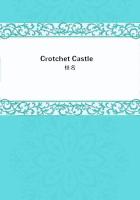These animals had now completely disappeared; they were seldom seen in those mountains. The journal says of Lewis:--"He saw an abundance of deer and antelope, and many tracks of elk and bear.
Having killed two deer, they feasted sumptuously, with a dessert of currants of different colors--two species red, others yellow, deep purple, and black; to these were added black gooseberries and deep purple service-berries, somewhat larger than ours, from which they differ also in color, size, and the superior excellence of their flavor. In the low grounds of the river were many beaver-dams formed of willow-brush, mud, and gravel, so closely interwoven that they resist the water perfectly; some of them were five feet high, and caused the river to overflow several acres of land."
Meanwhile, the party with the canoes were having a fatiguing time as they toiled up the river. On the fourth of August, after they had made only fifteen miles, the journal has this entry:--"The river is still rapid, and the water, though clear, is very much obstructed by shoals or ripples at every two hundred or three hundred yards.
At all these places we are obliged to drag the canoes over the stones, as there is not a sufficient depth of water to float them, and in the other parts the current obliges us to have recourse to the cord.
But as the brushwood on the banks will not permit us to walk on shore, we are under the necessity of wading through the river as we drag the boats.
This soon makes our feet tender, and sometimes occasions severe falls over the slippery stones; and the men, by being constantly wet, are becoming more feeble. In the course of the day the hunters killed two deer, some geese and ducks, and the party saw some antelopes, cranes, beaver, and otter."
Captain Lewis had left a note for Captain Clark at the forks of the Jefferson and Wisdom rivers. Clark's journal says:--"We arrived at the forks about four o'clock, but, unluckily, Captain Lewis's note had been attached to a green pole, which the beaver had cut down, and carried off with the note on it: an accident which deprived us of all information as to the character of the two branches of the river.
Observing, therefore, that the northwest fork was most in our direction, we ascended it. We found it extremely rapid, and its waters were scattered in such a manner that for a quarter of a mile we were forced to cut a passage through the willow-brush that leaned over the little channels and united at the top. After going up it for a mile, we encamped on an island which had been overflowed, and was still so wet that we were compelled to make beds of brush to keep ourselves out of the mud.
Our provision consisted of two deer which had been killed in the morning."
It should be borne in mind that this river, up which the party were ****** their way, was the Wisdom (now Big Hole), and was the northwest fork of the Jefferson, flowing from southeast to northwest; and near the point where it enters the Jefferson, it has a loop toward the northeast; that is to say, it comes from the southwest to a person looking up its mouth.
After going up the Wisdom River, Clark's party were overtaken by Drewyer, Lewis's hunter, who had been sent across between the forks to notify Clark that Lewis regarded the other fork--the main Jefferson--as the right course to take. The party, accordingly, turned about and began to descend the stream, in order to ascend the Jefferson. The journal says:--"On going down, one of the canoes upset and two others filled with water, by which all the baggage was wet and several articles were irrecoverably lost. As one of them swung round in a rapid current, Whitehouse was thrown out of her; while down, the canoe passed over him, and had the water been two inches shallower would have crushed him to pieces; but he escaped with a severe bruise of his leg.
In order to repair these misfortunes we hastened [down] to the forks, where we were joined by Captain Lewis. We then passed over to the left [east] side, opposite the entrance of the rapid fork, and camped on a large gravelly bar, near which there was plenty of wood.
Here we opened, and exposed to dry, all the articles which had suffered from the water; none of them were completely spoiled except a small keg of powder; the rest of the powder, which was distributed in the different canoes, was quite safe, although it had been under the water for upward of an hour. The air is indeed so pure and dry that any wood-work immediately shrinks, unless it is kept filled with water; but we had placed our powder in small canisters of lead, each containing powder enough for the canister when melted into bullets, and secured with cork and wax, which answered our purpose perfectly.
. . . . . . . .
In the evening we killed three deer and four elk, which furnished us once more with a plentiful supply of meat. Shannon, the same man who had been lost for fifteen days [August 28 to Sept. 11, 1804], was sent out this morning to hunt, up the northwest fork.
When we decided on returning, Drewyer was directed to go in quest of him, but be returned with information that he had gone several miles up the [Wisdom] river without being able to find Shannon. We now had the trumpet sounded, and fired several guns; but he did not return, and we fear he is again lost."
This man, although an expert hunter, had an unlucky habit of losing himself in the wilderness, as many another good man has lost himself among the mountains or the great plains.
This time, however, he came into camp again, after being lost three days.















